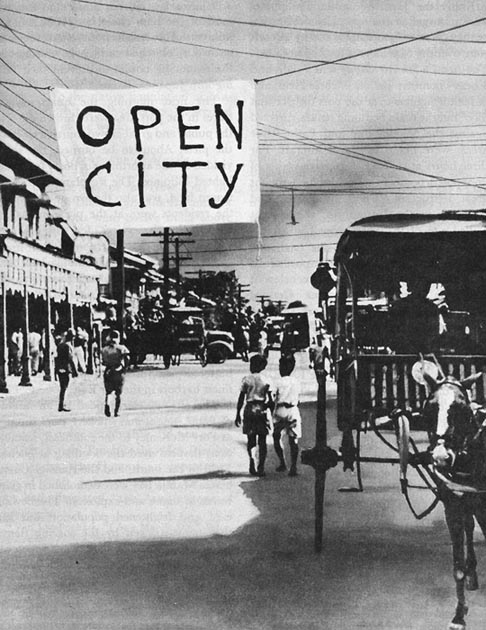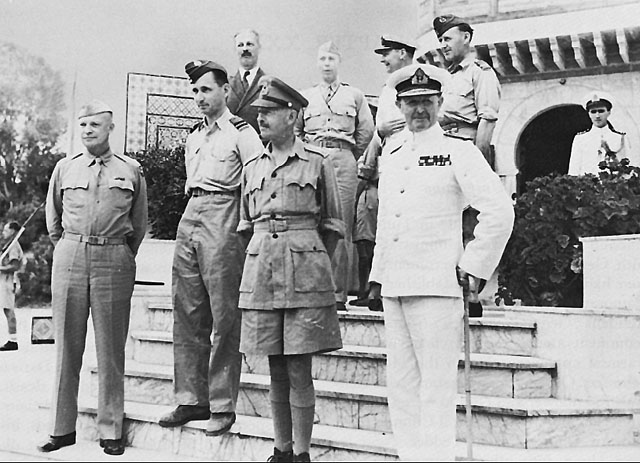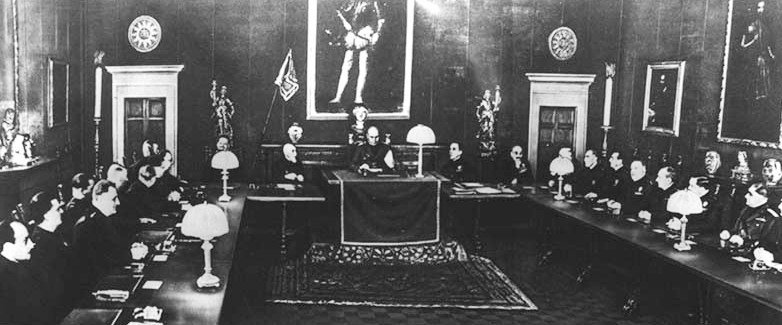|
Ardeatine Massacre
The Ardeatine massacre, or Fosse Ardeatine massacre ( it, Eccidio delle Fosse Ardeatine), was a mass killing of 335 civilians and political prisoners carried out in Rome on 24 March 1944 by German occupation troops during the Second World War as a reprisal for the Via Rasella attack in central Rome against the SS Police Regiment Bozen the previous day. Subsequently, the Ardeatine Caves site (''Fosse Ardeatine'') was declared a Memorial Cemetery and National Monument open daily to visitors. Every year, on the anniversary of the slaughter and in the presence of the senior officials of the Italian Republic, a solemn state commemoration is held at the monument in honour of the fallen. Each year, 335 names are called out, a simple roll call of the dead, to reinforce that 335 discrete individuals symbolise a collective entity. Historical background In July 1943, the Allies landed on the island of Sicily, preparing to invade the mainland, and Rome was bombed for the first time. O ... [...More Info...] [...Related Items...] OR: [Wikipedia] [Google] [Baidu] |
Rome
, established_title = Founded , established_date = 753 BC , founder = King Romulus ( legendary) , image_map = Map of comune of Rome (metropolitan city of Capital Rome, region Lazio, Italy).svg , map_caption = The territory of the ''comune'' (''Roma Capitale'', in red) inside the Metropolitan City of Rome (''Città Metropolitana di Roma'', in yellow). The white spot in the centre is Vatican City. , pushpin_map = Italy#Europe , pushpin_map_caption = Location within Italy##Location within Europe , pushpin_relief = yes , coordinates = , coor_pinpoint = , subdivision_type = Country , subdivision_name = Italy , subdivision_type2 = Regions of Italy, Region , subdivision_name2 = Lazio , subdivision_type3 = Metropolitan cities of Italy, Metropolitan city , subdivision_name3 = Metropolitan City of Rome Capital, Rome Capital , government_footnotes= , government_type = Mayor–council gover ... [...More Info...] [...Related Items...] OR: [Wikipedia] [Google] [Baidu] |
SS Police Regiment Bozen
Polizeiregiment "Südtirol" (Police Regiment "South Tyrol"), later ''Bozen'', and finally SS-Polizeiregiment "Bozen", was a military unit of the German ("Order Police") recruited in the largely ethnic-German Alto Adige region in north-east Italy in late 1943, during the ''de facto'' German annexation of the region. The ranks were ethnically German Italian draftees while officers and NCOs were Germans. On 23 March 1944 the 11th company of its 3rd battalion was the target of the Via Rasella attack in Rome, that led to the bloody German retaliation known as the Ardeatine massacre. The regiment's first and second battalions were active in Istria and Belluno respectively, while the third battalion was a reserve unit stationed in Rome. All three surrendered to Allied or partisan forces in the last days of the war. Background Following the Badoglio Proclamation on 8 September 1943, the announcement of the Armistice of Cassibile, Germany launched an invasion of Italy. Two days lat ... [...More Info...] [...Related Items...] OR: [Wikipedia] [Google] [Baidu] |
Open City
In war, an open city is a settlement which has announced it has abandoned all defensive efforts, generally in the event of the imminent capture of the city to avoid destruction. Once a city has declared itself open the opposing military will be expected under international law to peacefully occupy the city rather than destroy it. According to the Protocol I of the Geneva Conventions, it is forbidden for the attacking party to "attack, by any means whatsoever, non-defended localities". The intent is to protect the city's civilians and cultural landmarks from a battle which may be futile. Attacking forces do not always respect the declaration of an "open city". Defensive forces will occasionally use the designation as a political tactic as well. In some cases, the declaration of a city to be "open" is made by a side on the verge of defeat and surrender; in other cases, those making such a declaration are willing and able to fight on but prefer that the specific city be spared. ... [...More Info...] [...Related Items...] OR: [Wikipedia] [Google] [Baidu] |
Pope
The pope ( la, papa, from el, πάππας, translit=pappas, 'father'), also known as supreme pontiff ( or ), Roman pontiff () or sovereign pontiff, is the bishop of Rome (or historically the patriarch of Rome), head of the worldwide Catholic Church, and has also served as the head of state or sovereign of the Papal States and later the Vatican City State since the eighth century. From a Catholic viewpoint, the primacy of the bishop of Rome is largely derived from his role as the apostolic successor to Saint Peter, to whom Petrine primacy, primacy was conferred by Jesus, who gave Peter the Keys of Heaven and the powers of "binding and loosing", naming him as the "rock" upon which the Church would be built. The current pope is Pope Francis, Francis, who was 2013 papal conclave, elected on 13 March 2013. While his office is called the papacy, the ecclesiastical jurisdiction, jurisdiction of the episcopal see is called the Holy See. It is the Holy See that is the sovereign enti ... [...More Info...] [...Related Items...] OR: [Wikipedia] [Google] [Baidu] |
Allied Invasion Of Sicily
The Allied invasion of Sicily, also known as Operation Husky, was a major campaign of World War II in which the Allies of World War II, Allied forces invaded the island of Sicily in July 1943 and took it from the Axis powers (Fascist Italy (1922–1943), Fascist Italy and Nazi Germany). It began with a large Amphibious warfare, amphibious and airborne forces, airborne Military operation, operation, followed by a six-week land campaign, and initiated the Italian campaign (World War II), Italian campaign. To divert some of the Axis forces to other areas, the Allies engaged in several deception operations, the most famous and successful of which was Operation Mincemeat. Husky began on the night of 9–10 July 1943 and ended on 17 August. Strategically, Husky achieved the goals set out for it by Allied planners; the Allies drove Axis air, land and naval forces from the island and the Mediterranean Sea, Mediterranean sea lanes were opened for Allied merchant ships for the first time ... [...More Info...] [...Related Items...] OR: [Wikipedia] [Google] [Baidu] |
Carabinieri
The Carabinieri (, also , ; formally ''Arma dei Carabinieri'', "Arm of Carabineers"; previously ''Corpo dei Carabinieri Reali'', "Royal Carabineers Corps") are the national gendarmerie of Italy who primarily carry out domestic and foreign policing duties. It is one of Italy's main law enforcement agencies, alongside the Polizia di Stato and the Guardia di Finanza. As with the Guardia di Finanza but in contrast to the Polizia di Stato, the Carabinieri are a military force. As the fourth branch of the Italian Armed Forces, they come under the authority of the Ministry of Defence; for activities related to inland public order and security, they functionally depend on the Ministry of the Interior. In practice, there is a significant overlap between the jurisdiction of the Polizia di Stato and Carabinieri, although both of them are contactable through 112, the European Union's Single Emergency number. Unlike the Polizia di Stato, the Carabinieri have responsibility for policin ... [...More Info...] [...Related Items...] OR: [Wikipedia] [Google] [Baidu] |
Gendarmerie
Wrong info! --> A gendarmerie () is a military force with law enforcement duties among the civilian population. The term ''gendarme'' () is derived from the medieval French expression ', which translates to " men-at-arms" (literally, "armed people"). In France and some Francophone nations, the gendarmerie is a branch of the armed forces that is responsible for internal security in parts of the territory (primarily in rural areas and small towns in the case of France), with additional duties as military police for the armed forces. It was introduced to several other Western European countries during the Napoleonic conquests. In the mid-twentieth century, a number of former French mandates and colonial possessions (such as Lebanon, Syria, the Ivory Coast and the Republic of the Congo) adopted a gendarmerie after independence. A similar concept exists in Eastern Europe in the form of Internal Troops, which are present in many countries of the former Soviet Union and ... [...More Info...] [...Related Items...] OR: [Wikipedia] [Google] [Baidu] |
Pietro Badoglio
Pietro Badoglio, 1st Duke of Addis Abeba, 1st Marquess of Sabotino (, ; 28 September 1871 – 1 November 1956), was an Italian general during both World Wars and the first viceroy of Italian East Africa. With the fall of the Fascist regime in Italy, he became Prime Minister of Italy. Early life and career Badoglio was born in 1871. His father, Mario Badoglio, was a modest landowner, and his mother, Antonietta Pittarelli, was of middle-class background. On 5 October 1888 he was admitted to the Royal Military Academy in Turin. He received the rank of Second Lieutenant in 1890. In 1892, he finished his studies and was promoted to Lieutenant. After completing his studies, he served with the '' Regio Esercito'' (Italian Royal Army) from 1892, at first as a Lieutenant (''Tenente'') in artillery, taking part in the early Italian colonial wars in Eritrea (1896), and in Libya (1912). First World War At the beginning of Italian participation in the First World War, he was a ... [...More Info...] [...Related Items...] OR: [Wikipedia] [Google] [Baidu] |
Victor Emanuel III
Victor Emmanuel III (Vittorio Emanuele Ferdinando Maria Gennaro di Savoia; 11 November 1869 – 28 December 1947) was King of Italy from 29 July 1900 until his abdication on 9 May 1946. He also reigned as Emperor of Ethiopia (1936–1941) and King of the Albanians (1939–1943). During his reign of nearly 46 years, which began after the assassination of his father Umberto I, the Kingdom of Italy became involved in two world wars. His reign also encompassed the birth, rise, and fall of Italian Fascism and its regime. During the First World War, Victor Emmanuel III accepted the resignation of Prime Minister Paolo Boselli and named Vittorio Emanuele Orlando (the ''premier of victory'') in his place. Despite being on the winning side of the First World War, Italy did not get all the territories which had been promised to it in the 1915 Treaty of London; the Treaty of Versailles, ending the war, failed to give Italy its demands for Fiume and Dalmatia. This mutilated victory l ... [...More Info...] [...Related Items...] OR: [Wikipedia] [Google] [Baidu] |
No Confidence
A motion of no confidence, also variously called a vote of no confidence, no-confidence motion, motion of confidence, or vote of confidence, is a statement or vote about whether a person in a position of responsibility like in government or management is still deemed fit to hold that position, such as because they are inadequate in some aspect, fail to carry out their obligations, or make decisions that other members feel to be detrimental. The parliamentary motion demonstrates to the head of government that the elected Parliament either has or no longer has confidence in one or more members of the appointed government. In some countries, a no-confidence motion being passed against an individual minister requires the minister to resign. In most cases, if the minister in question is the premier, all other ministers must also resign. A censure motion is different from a no-confidence motion. Depending on the constitution of the body concerned, "no confidence" may lead to the di ... [...More Info...] [...Related Items...] OR: [Wikipedia] [Google] [Baidu] |
Benito Mussolini
Benito Amilcare Andrea Mussolini (; 29 July 188328 April 1945) was an Italian politician and journalist who founded and led the National Fascist Party. He was Prime Minister of Italy from the March on Rome in 1922 until his deposition in 1943, and " Duce" of Italian Fascism from the establishment of the Italian Fasces of Combat in 1919 until his execution in 1945 by Italian partisans. As dictator of Italy and principal founder of fascism, Mussolini inspired and supported the international spread of fascist movements during the inter-war period. Mussolini was originally a socialist politician and a journalist at the ''Avanti!'' newspaper. In 1912, he became a member of the National Directorate of the Italian Socialist Party (PSI), but he was expelled from the PSI for advocating military intervention in World War I, in opposition to the party's stance on neutrality. In 1914, Mussolini founded a new journal, '' Il Popolo d'Italia'', and served in the Royal Italian ... [...More Info...] [...Related Items...] OR: [Wikipedia] [Google] [Baidu] |
Fascist Grand Council
The Grand Council of Fascism (, also translated "Fascist Grand Council") was the main body of Mussolini's Fascist government in Italy, that held and applied great power to control the institutions of government. It was created as a body of the National Fascist Party in 1922, and became a state body on 9 December 1928. The council usually met at the Palazzo Venezia, Rome, which was also the seat of the head of the Italian government. The Council became extinct following a series of events in 1943, in which Benito Mussolini was voted out of the Prime Ministry of Italy. Powers of the Council Essentially, the council held these powers: *The power to elect the Fascist Party deputies, the nomination for the Party Secretary and other party leaders, the approval of the party statutes and the power regarding the party's policy. *The power to elect the Crown's line of succession including the choice of the heir to the throne, the right of the crown, the power to choose possible succes ... [...More Info...] [...Related Items...] OR: [Wikipedia] [Google] [Baidu] |







